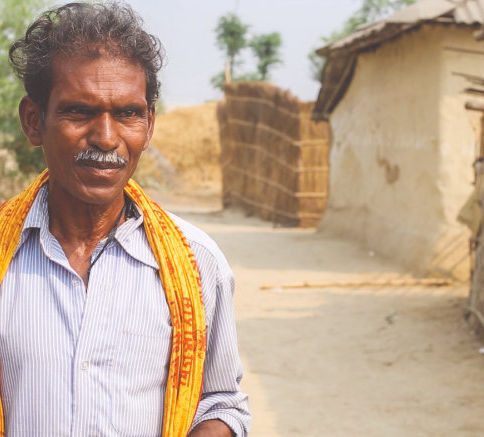




Areas of Our Work
RENEWABLE SOURCE OF ENERGY
Solar Water Pumps
Solar Water Mills
Solar Water Filtration
Solar Wind Hybrid Energy Systems
Micro Hydro Energy Systems
Biomass Gasifiers
Solar Home Lighting Systems
WASH
Irrigation Systems
Drinking Water Systems






LAND USE
Sustainable agriculture
Climate-smart Irrigation
ENERGY EFFICIENT & ALTERNATIVE FUELS
Improved Cookstoves
Pellet Production Through Agro Waste
Improved Water Mills
SOCIO-ECONOMIC
Income Generation Activities And Capacity Building
Financial Inclusion Activities
What We Do

Climate Change
The world is already experiencing an increasing frequency of extreme weather events, changes in average temperature and shifts in seasons. Our Climate Adaptation program envisions to build the resilience of communities vulnerable to the impacts of climate change. We introduce best practices, alternate livelihood opportunities, innovative technologies and financial instruments and community-owned models to strengthen the response of the communities and build the resilience of the economy to manage the risks associated with changing climatic patterns. Our projects build practices which, promote behavioural shifts to sustainably utilise resources and also are suited to local conditions.

Alternative Energy
Renewable energy technologies are available from different natural resources: biomass, geothermal, hydropower, ocean power, solar (photovoltaic and solar thermal), wind and hydrogen. Our rural energy access program strengthens the development initiatives in rural and remote regions, prioritizing innovation to suit local conditions. Through the extensive support provided by iNGOs, government and private sectors, we seek to promote the dissemination of renewable energy technologies in the rural communities of Nepal to create a more sustainable way of living. We are also a big believer in digitization of these technologies for better user experience and to enhance scalability .

Water Supply and Sanitation
Functional status of water schemes and the quality of water remains poor with 71% of all water sources and 91% of those used by the poorest quintile contaminated with Escherichia coli bacteria. Only 25% of the water supply in Nepal is reported to be fully functioning and almost 40% requires major repairs. We envision to build environments for the adoption of WASH technologies and improved hygiene behaviours by strengthening the linkages and synergy between the local government organisations and line agencies with WASH responsibilities and non-government and private sector service providers.
Our Mission
EPC Nepal is a profit-for-purpose organization that contributes to sustainable community development by combining research and action through integrated programs in climate change, alternative energy, and natural resource management. We seek to promote the dissemination of renewable energy technologies (RETs), and sustained functioning of water supply and sanitation (WASH) infrastructure and work to restore, maintain and enhance the natural resources of the region through private sector engagement. EPC targets Terai Districts of Nepal with district-based staff and a coordinating office in Chandranigarpur, Rautahat, and an administrative setup in Kathmandu. Due to a combination of economic, political, and cultural factors, these districts have very limited experience with RETs and other allied technologies and have been labeled Low Penetration Districts by the Alternative Energy Promotion Centre (AEPC), a division of the Ministry of Environment. We intend to increase the ambit of our work to other spaces of environmental importance such as Land use and Air quality, both huge issues in the country of Nepal.
Our Leadership

Sandip Kumar Kanth
An RETs Expert by profession, Sandeep has varied academic and professional experiences in the sector of energy planning, energy financing and climate change. He brings in more than fifteen years of working experiences from consulting firms, private companies, local government bodies to financial institutions. He has spent much of his professional career working in rural communities installing, managing and institutionalizing renewable energy technologies in the far flung remote hills and Terai region of Nepal. He is also a director of EPC-Nepal.
Specialties: Renewable Energy Planning, Energy Financing, Environment Management, Natural Resources Management, Business Strategy Planning and Management, Clean Development Mechanism, Climate Mitigation and Adaptation.

Neelam Sharma Rijal
"Holding a post-graduate degree in Environmental Science he has more than 10 years of professional experience in areas related to carbon and climate financing, environmental safeguards and sustainability consulting. He has an in-depth understanding of the rules and procedures of the prominent carbon standards such as the UNFCCC, the Gold Standard and the Voluntary Carbon Standards. He’s worked significantly in CDM and GS project cycle management. He is also a trained professional on GHG inventory and project proposal preparation for Green Climate Fund (GCF)."

Sandeep Roy Choudhury
Sandeep works as a director of strategy and business development with the organisation. He has over 15 years of experience in the development sector. He is also a director with VNV Advisory Services, a leading social enterprise in South Asia. Apart from that he is a director with a non-profit called ‘ Carbon Initiative Forum ‘ and an advisory board member at Bangladesh Bondhu foundation. He is a Salzburg global fellow and is the current co-chair of the International Carbon reduction alliance (ICROA).

Firoj Kumar Chaudhary
Mr. Chaudhary is a veteran in development sector gaining incredible knowledge and understanding of stakeholders, community and human resources management. He owns long experience in renewable energy, water sanitation and climate resilience.






